'No Time to Die' Review
Plus, Neon offers up an exciting new distribution model: egregious scarcity!
No Time to Die Review
Rewatching the Daniel Craig run as James Bond over the last week, the thing I realized I like the most about his work as 007 is just how angry he can look while performing his duties.
Whenever James Bond is in a physical fight—or literally running through walls, as he does in Casino Royale—there’s a look of pure hate on his face. It’s contorted into a mask of rage, fury just radiating off it. He doesn’t engage in a martial artist’s dance or a ballet with bullets; it’s a serious, concerted effort to end the existence of another human being by putting his fist all the way through someone’s face.
This is not to say that Craig always looked furious as James Bond. He could often be quite funny. But even the humor is often laced with a sort of cutting cruelty, the smirk on his face one of disdain rather than Zen detachment from the absurdity of his situation. And as the Craig era draws to a close, it’s that anger—at his enemies, his superiors, the world itself—that really did make him the perfect Bond for our age.
After a brief flashback, No Time to Die picks up where Spectre left off, with Bond and Madeleine (Lea Seydoux) making the most of their newfound freedom. While touring the Italian countryside, Bond visits the grave of an old friend and is just about blown up for his troubles. A calling card and a mysterious phone call from Spectre, the criminal organization led by Blofeld (Christoph Waltz) in the last film, lead Bond to believe Madeleine had something to do with it. She’s broken his heart, the second time a woman’s betrayal has done so in the series. He puts her on a train—and that breaks hers in return.
Flash forward five years and a team of villains has stolen a super-bug from a super-secret British laboratory with the aid of a super-sketchy Russian. Bond is called out retirement to track the Russian down … but not by M (Ralph Fiennes), who wants Bond to stay out of it so the new 007 (Lashana Lynch) can handle things. No, it’s his old pal Felix Leiter (Jeffrey Wright) from the CIA who searches out Bond, puts him in touch with Paloma (Ana de Armas) in Cuba, and places the pair of them in the midst of a giant Spectre reunion that goes haywire and sets the rest of the plot in motion.
Ana de Armas is truly delightful as Paloma, bringing a sort of wide-eyed innocence and exuberance to the sequence that makes you wish she and her cocktail dress had been in an hour of the two-and-three-quarter-hour running time rather than a scant twenty minutes. MI6 mainstays like Fiennes, Naomie Harris as Moneypenny, and Ben Whishaw as Q are perfectly adequate, while Lynch is devastatingly professional and competent as the new 007.
I haven’t even mentioned Rami Malek or his character Safin, and that’s because it a.) takes kind of a long time to get to him and b.) his motivations are bizarrely unclear. Or, rather, his grand motivations are bizarrely unclear. He has smaller motivations that make a lot of sense! But once he moves beyond them and gets to the “let’s kill all the people with the deadly virus” phase, well … the movie doesn’t really bother explaining why he wants to do this. Literally: I don’t think there’s a single line even trying to make sense of it. That said, a deranged and horribly disfigured Bond villain is the role Malek’s face was molded to play.
Full disclosure: I’m not really a fan of the Bond series. I don’t have any particular dislike of them, either. I’ve just never really understood the intense feelings they inspire in certain quadrants. So I don’t have any strong opinions on how these films stack up to those made by Connery or Moore or Lazenby or Dalton or Brosnan.
I will say that this quintet of pictures has packed a more poignant punch than any of the previous Bond movies I’ve seen. From Casino Royale’s decision to have Bond betrayed by a woman he loves to the closing moments of No Time to Die, the folks at Eon have ensured that Craig’s Bond is the first that I found myself feeling any sort of emotional sentiment for or attachment to.
That’s at least in part because of the decision to tie all of these films together, itself another reflection of our time. The mid-century Bond was a response to Cold War concerns. The Brosnan Bond was a response to the chaos of a post-Cold War. And Craig’s (angry, punchy) Bond is, in addition to being a response to a post-9/11 world, a reflection of the world of prestige TV, an effort to bring the small screen’s harder-tinged anti-heroics to the big screen.
Hello! If you’re into podcasts, make sure to check out this week’s Across the Movie Aisle on The Many Saints of Newark(and the bonus episode on what we think happened to Tony!) and my Bulwark Goes to Hollywood interview with Scott Eyman about his book, 20th Century-Fox: Darryl F. Zanuck and the creation of the Modern Film Studio. If the written word’s more your jam, please check out my review of Lamb and Bill Ryan’s excellent essay on Thomas Ligotti. And share this newsletter with a friend if you’re enjoying it! Always nice to add more people to the party.
Neon’s Wonderful Release Strategy
No Time to Die is basically guaranteed to do numbers; if it doesn’t surpass Venom: Let There Be Carnage to nab the highest-grossing debut in the pandemic era, I’d be a little surprised. But the facts of life at the box office are pretty stark and have been exacerbated in the pandemic era: Big-budget comic-book movies and sequels are gold; horror can do okay; and everything else is in pretty dire straits.
Now: this is not entirely different from how things were before the pandemic, for sure. But things have gotten markedly worse. A movie like The Card Counter was always going to be a struggle to sell, but at this point in time it’s nearly impossible. The art house is in bad shape.
All of which is to say that a movie like Memoria—a dream-like indie starring Tilda Swinton from Thai director Apichatpong Weerasethakul (Uncle Boonmee Who Can Recall His Past Lives)—was going to have a tough go of it at the box office. Distributor Neon’s options were, it seems, pretty clear and pretty limited: a short theatrical-only stint that would qualify it for Oscar consideration before hitting VOD and disappearing into the morass of #content offered up by the streaming services.
Neon head Tom Quinn looked down at the masses begging for instant gratification and whispered no. Instead of a muted theatrical release followed by being dumped onto streaming or VOD platforms, Quinn and Weerasethakul announced that the film would play city-by-city as part of a traveling roadshow and that it would never ever be released for home viewing.
I quite love this, even if I had no particular desire to see the movie. Making the thing an event to enjoy rather than a stream of content to consume ensures that it will be discussed longer and treated more seriously. Needless to say, the whiners who hate movie theaters are very upset about all this, demanding instant gratification for this and every other movie, wailing about accessibility issues, screaming that people who live in certain places will never be able to see it.
Boo hoo.
A.O. Scott summarizes this argument with the headline question, “Is moviegoing undemocratic?” The question is transparently absurd: there’s very little that’s as democratic as going to the movies, a source of entertainment with no barrier to entry aside from the cost of a ticket. But in the question’s very absurdity we get to the heart of the complaint made by those who can’t handle being denied access to something: entitlement.
It’s entitlement that drives people to demand instant access to everything ever made at whatever price point (usually nearing zero) the demander demands. It’s entitlement to couch your desire for this instant gratification in the language of civil rights, screeching about accessibility when theaters are already remarkably accessible and remarkably safe from COVID. And it’s entitlement that leads to absurd worries about spoilers and the such, the idea that you have some right to experience art with no foreknowledge of it whatsoever.
I salute Quinn and Neon for welcoming what they had to know what would be a bunch of very angry complaints. I have no idea when Memoria is going to make its way to Dallas, but I can’t wait for it to get here.
Assigned Viewing: Pale Rider (HBO Max)
There’s a small exhibit of Clint Eastwood posters and paraphernalia on display at the AT&T headquarters in Downtown Dallas as part of a celebration of the actor’s 50 years in the director’s chair. (Remember: AT&T still owns WarnerMedia for the time being.) I wrote about it a bit for the Washington Post this week in a broader consideration of what Clint’s career has to say about the state of American men.
HBO Max (part of WarnerMedia/AT&T) is also showing a bunch of Clint’s movies, and one I rewatched in recent weeks is Pale Rider. I don’t love Pale Rider because it feels like High Plains Drifter did most of the things in this movie earlier and better. But I still enjoy it and I do love the idea of Clint Eastwood portraying himself as—literally if we are to believe the voiceover read as he appears from the mist to deliver God’s judgment—Death from Revelation, stalking villains who are trying to scare a group of poor miners away from their gold claim. There’s something delightfully brash about that.



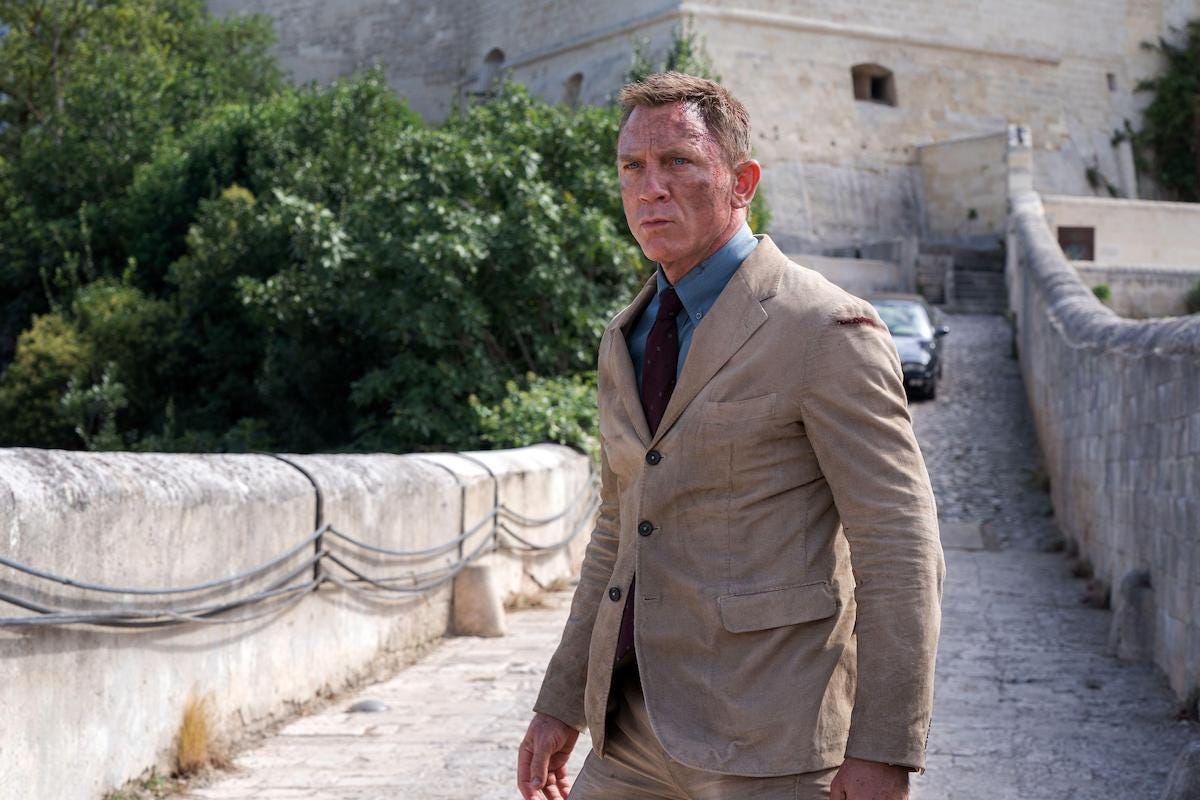
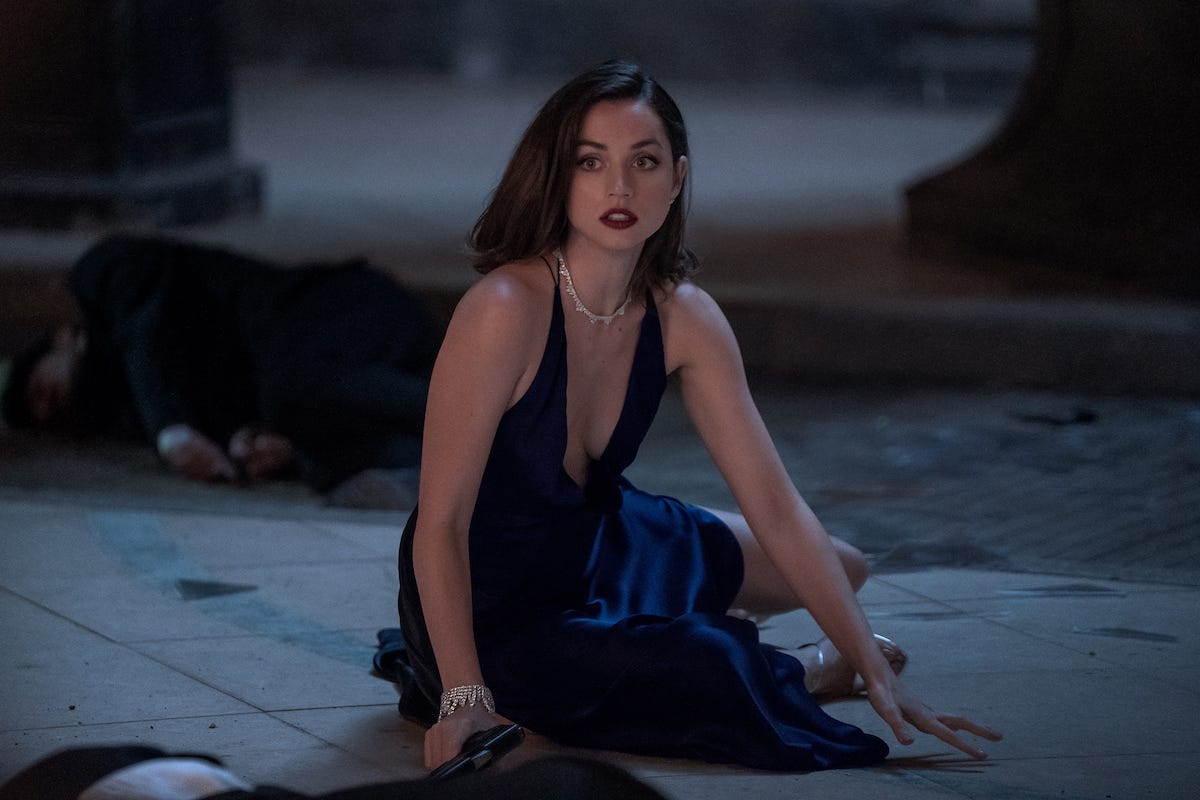
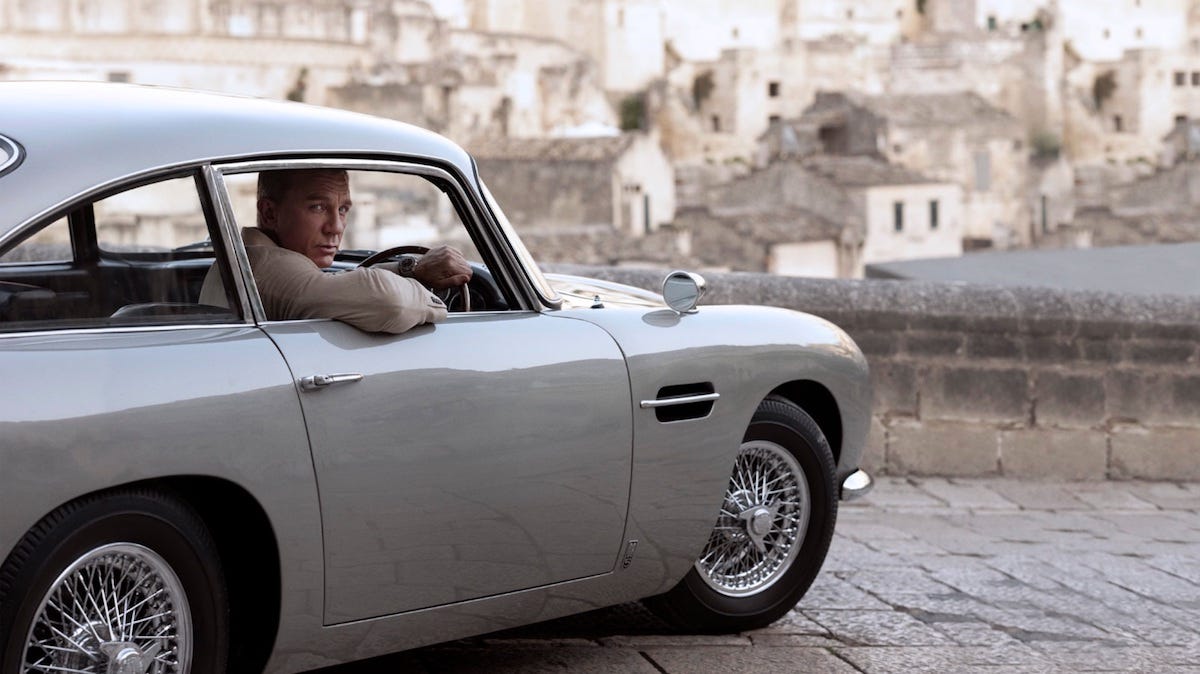
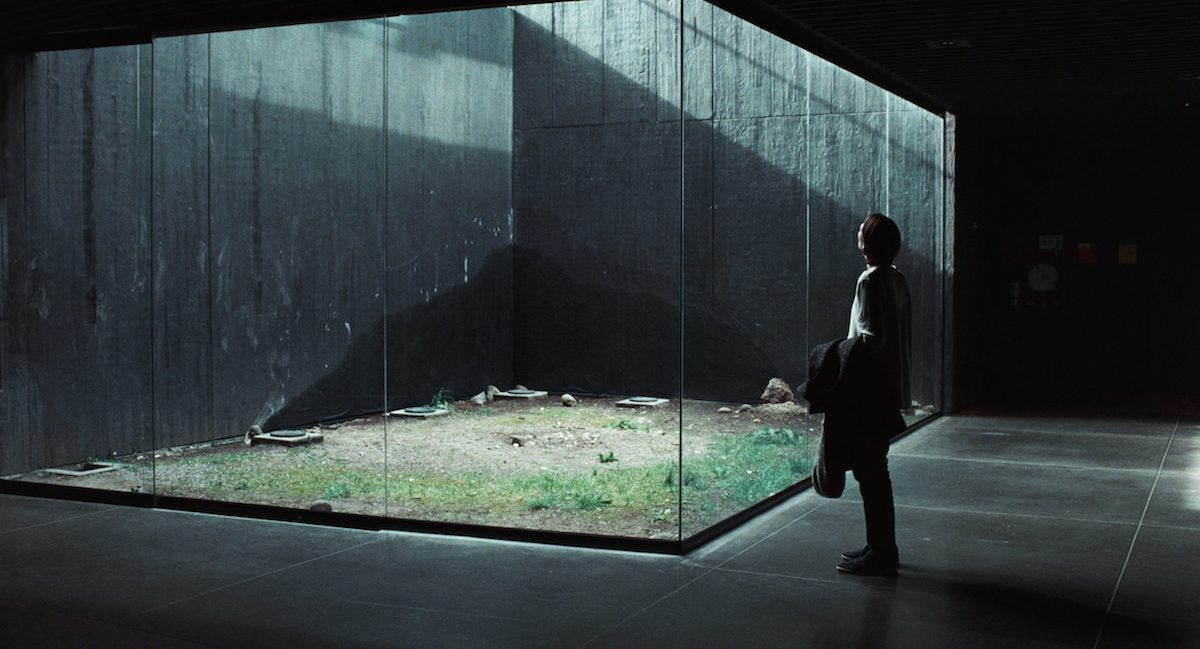
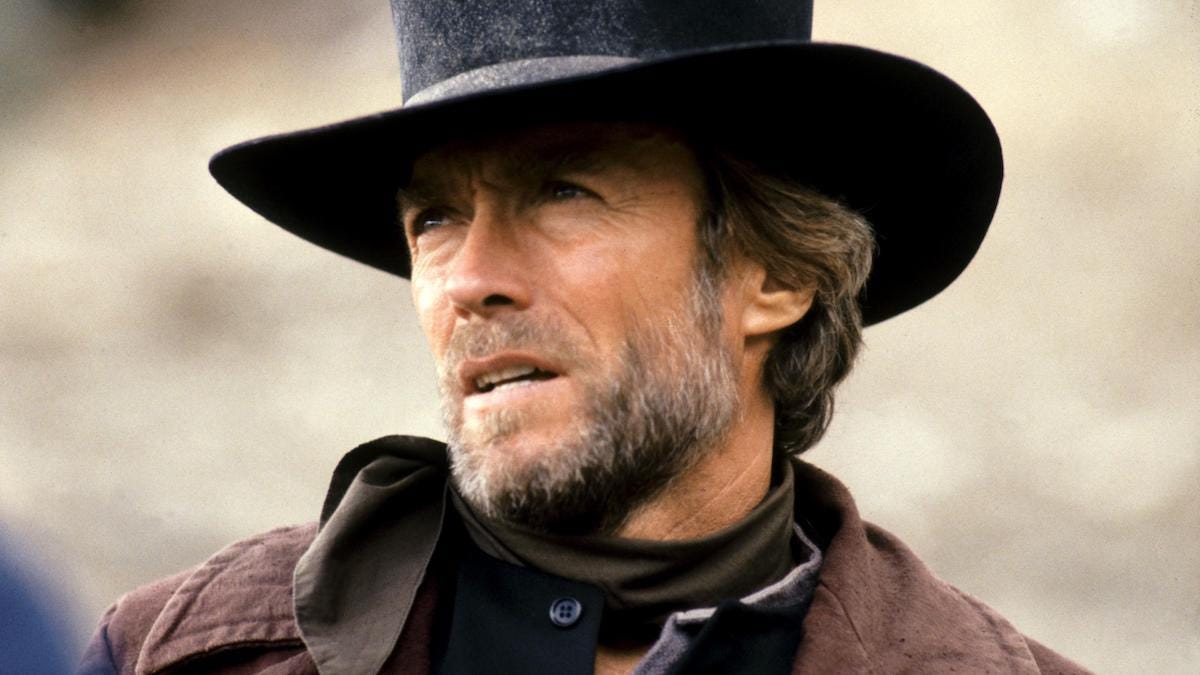
The beginning of the film takes place in Italy, not Greece.
I have been really enjoying all the positive reviews for the film. I went into No Time to Die wanting to love it as much as I did Skyfall and Casino Royal. I didn't because the story felt sluggish and the villain doesn't make any sense. That being said, what I appreciated most about it are all the things that Daniel Craig brought into it. It's pretty cool that he got to do a legit sendoff.
There is a really solid Daniel Craig documentary on Apple TV+ called "Being Bond." It's largely a promotional video but it doesn't really paper over the rough spots of the Craig run, starting with the reaction to his casting. It has a bit more bite than your standard PR affair.
Finally, Ana de Armas has such a charismatic screen presence. I felt her eager, goofy, but fully capable character felt more fleshed out than a few other characters that had more screen time.